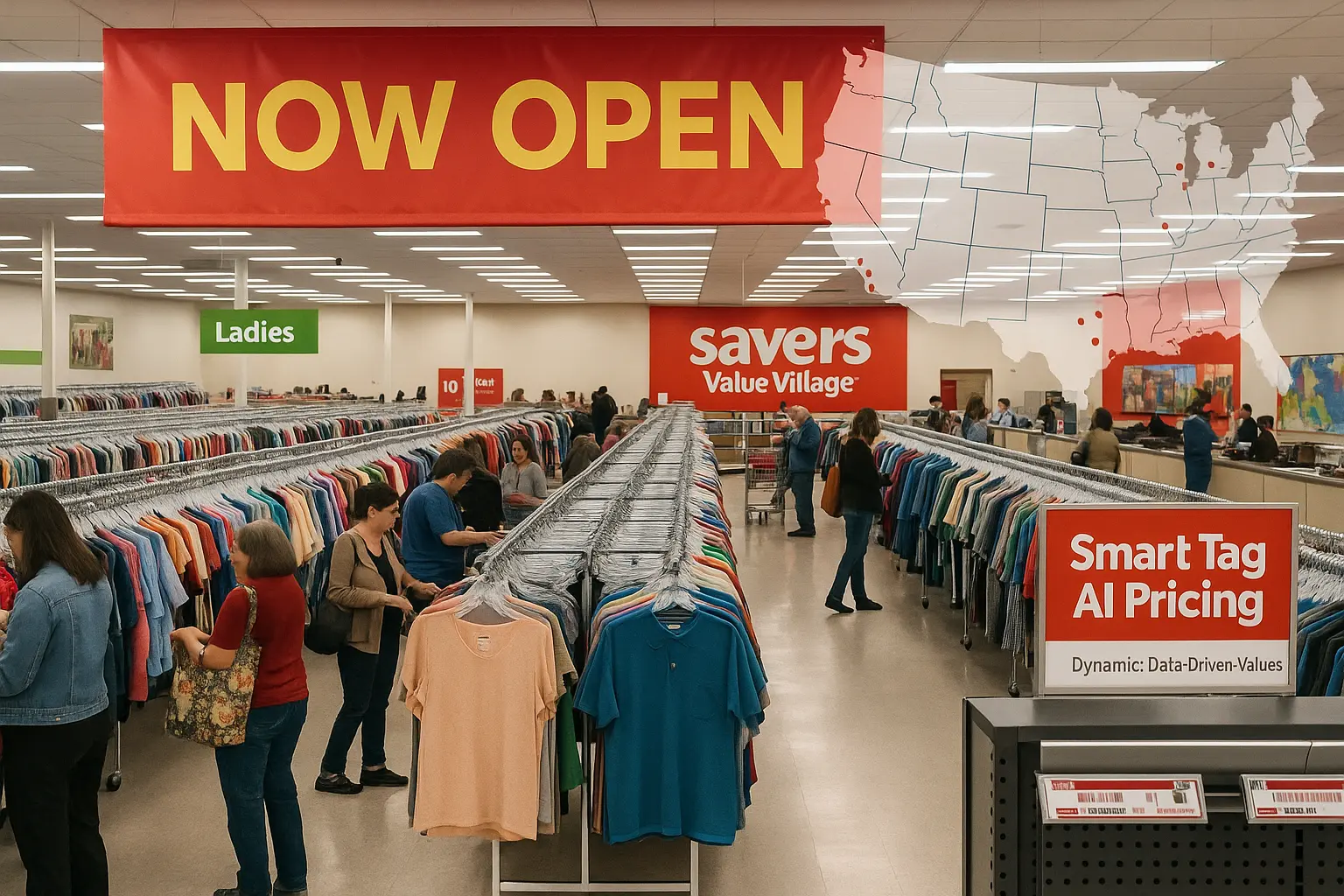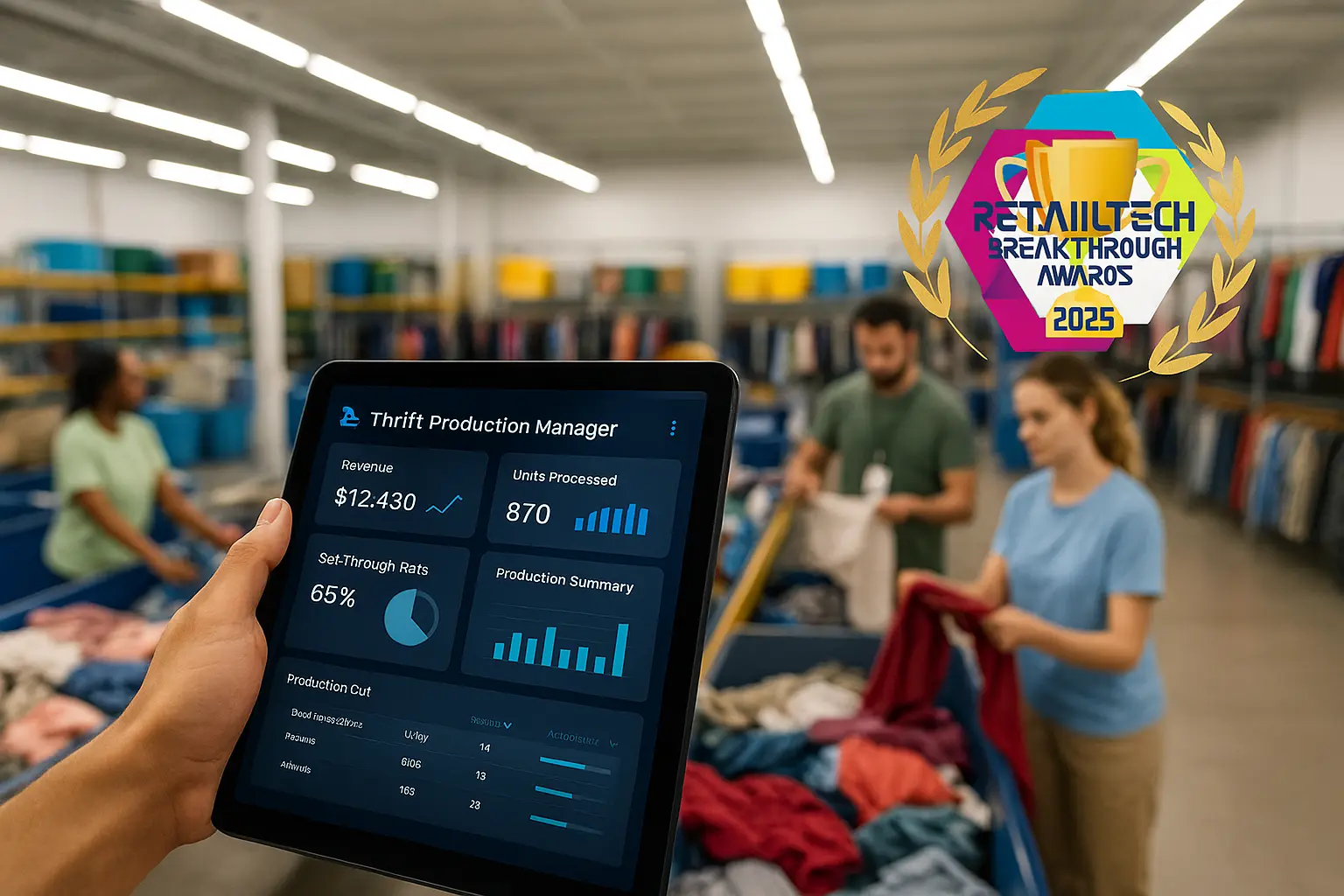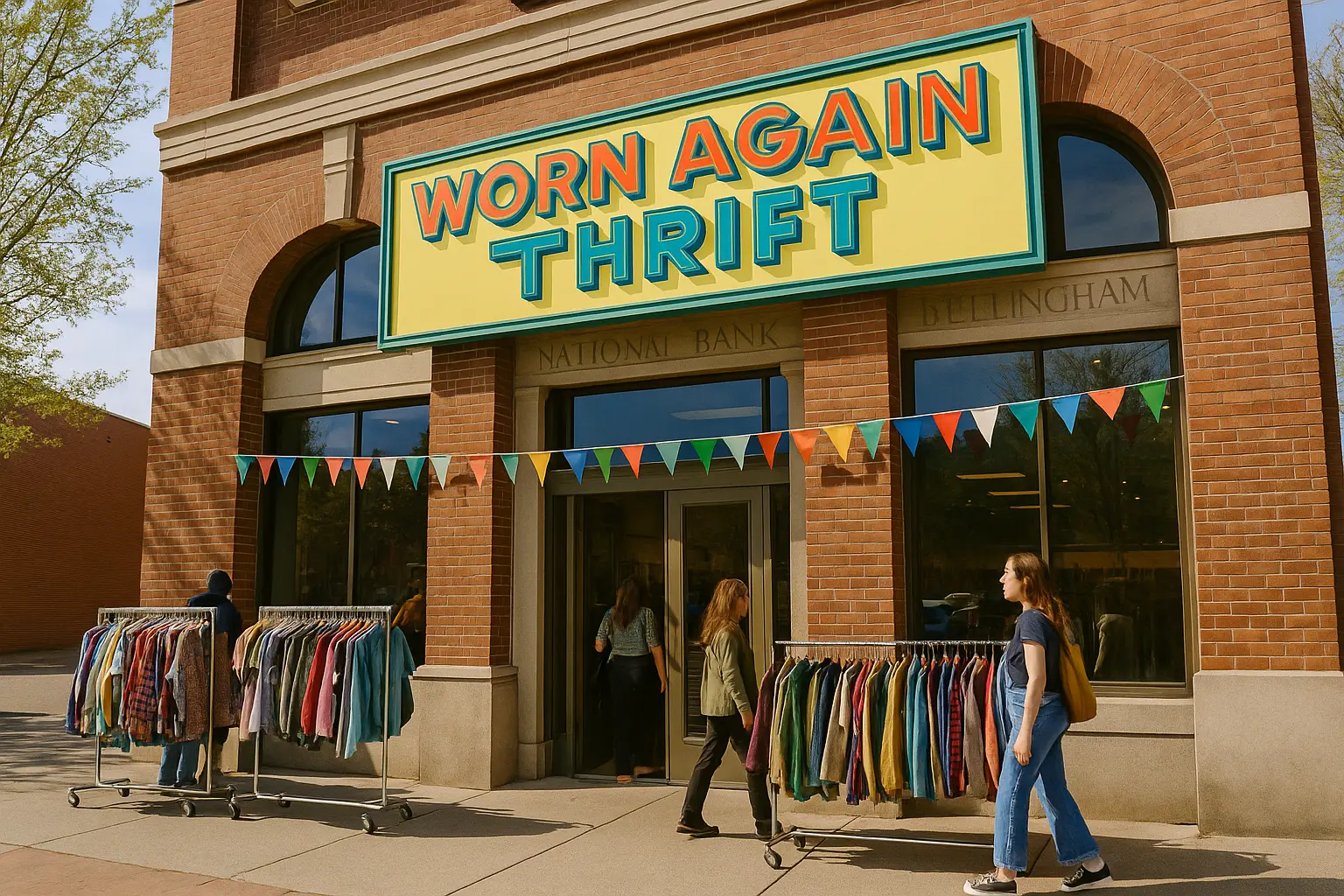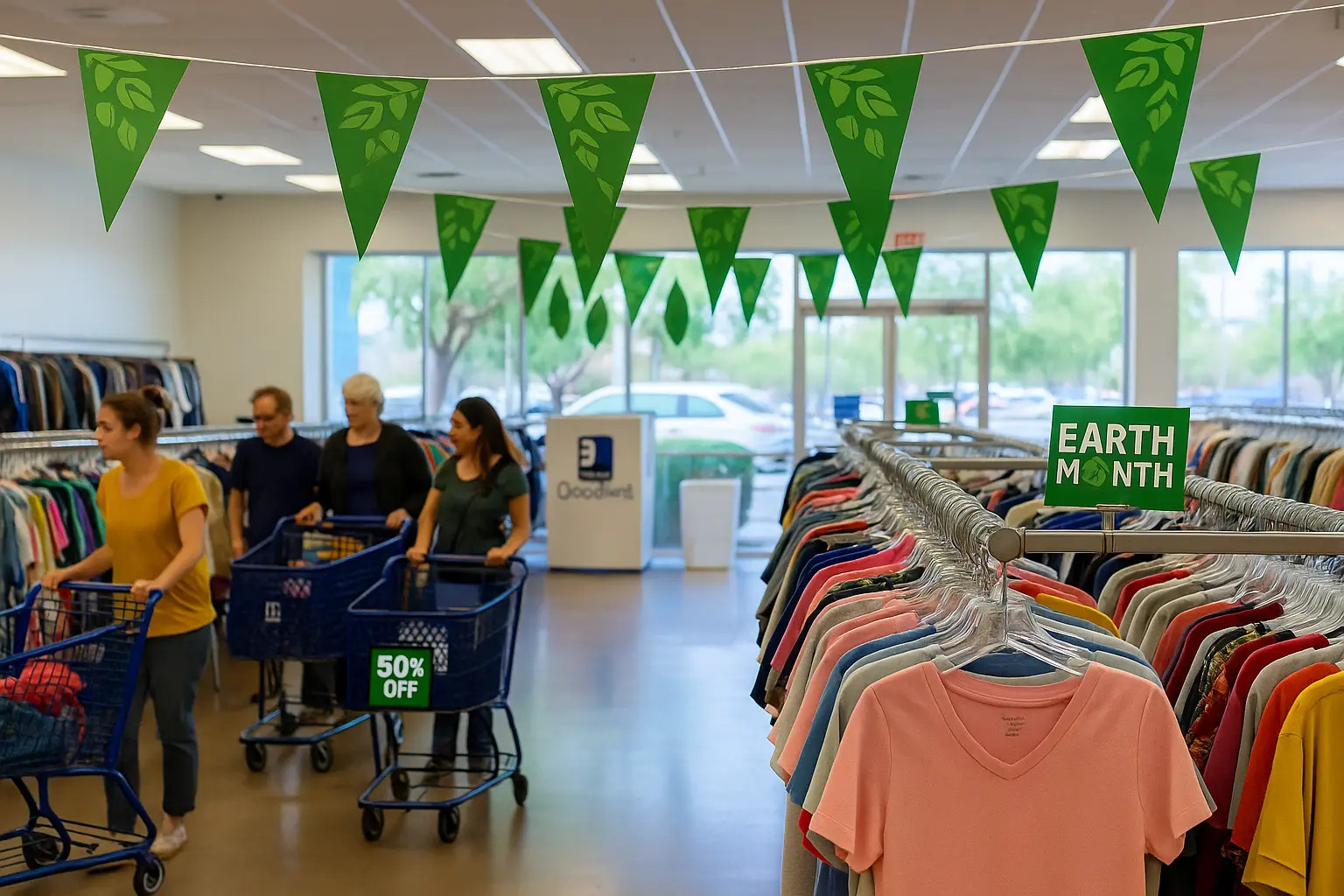AI-Powered “Thrift Production Manager” Wins 2025 RetailTech Breakthrough Award
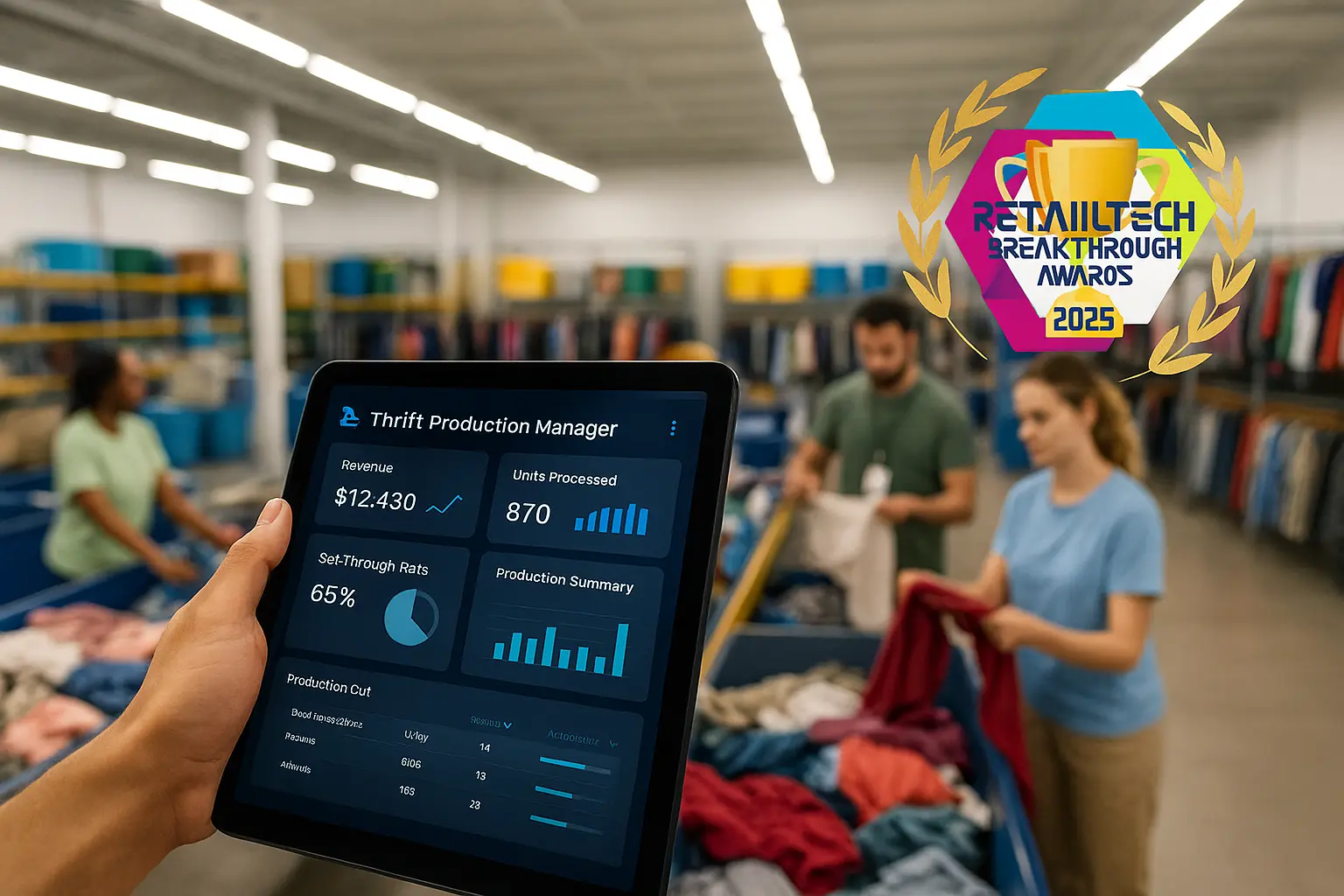
Table of Contents
What Is the RetailTech Breakthrough Award?
The *RetailTech Breakthrough Awards* sift through more than 2,000 global nominations to spotlight the year’s most disruptive retail innovations. In the 2025 list—announced early on April 30 2025—New Hampshire-based Retail Control Systems (RCS) captured the coveted “Overall RetailTech Solution of the Year” trophy for its new Thrift Production Manager (TPM).
Previous winners include Shopify for headless commerce and Microsoft for computer-vision shelf analytics; TPM is the first thrift-specific platform ever to make the podium—underscoring how resale has shifted from “niche” to a $180-billion-and-growing mainstream sector.
Inside Thrift Production Manager
TPM marries cloud point-of-sale data with machine-learning models trained on 20 million donated items. The result: real-time “smart tags” that recommend pricing based on brand heat, fabric composition, and local sell-through velocity. A single Zebra printer can spit out 800 QR labels per hour, each containing size, category, sustainability score, and employee ID to reward top processors with gamified dashboards.
Key modules include:
- Dynamic Price Optimizer 1.3 – Adjusts tag prices nightly against online comps.
- AI-Bulk Sort Assist – Vision cameras read bins and auto-route denim vs. home goods.
- Goal Tracker – Live KPI wallboards that flash green when daily units processed surpass baseline.
- Donation GPS – Pin-drops origin ZIP codes to forecast donation trends three months out.
According to RCS, early adopters have sliced average processing time from 14 minutes per item to just 9, while margin per square foot is up 17 percent across pilot locations.
How AI Changes the Back Room
Ask any veteran sorter: the donation back room is where thrift dreams go to bottleneck. Overflow hampers quality control, items age out, and valuable stock sometimes lands in the rag pile. TPM’s computer-vision triage—paired with an employee-friendly touchscreen that auto-suggests condition codes—means fewer mistakes and faster throughput.
The AI doesn’t replace humans; it coaches them. Light-up indicators nudge staff when XL shirts move into clearance eligibility, while leaderboards turn mundane tagging into a Mario-Kart-style race that boosts morale.
Goodwill & Salvation Army Case Studies
Goodwill of Southwest Florida integrated TPM across its 30-store network in February. COO Maria Hernandez reports a 21 percent reduction in dumped textiles and a 12 percent bump in e-commerce revenue after barcodes synced to ShopGoodwill overnight feeds.
In Michigan, Salvation Army Thrift East Division rolled out TPM to five flagship stores. Early data shows damaged clothing mis-sorted into home goods bins dropped from 8 percent to 1.4 percent, netting $340,000 in annual savings.
Benefits for Everyday Shoppers
- Faster restocks: fresh racks hit the floor every 30 minutes instead of once per day.
- Smart sizing: QR tags filter by waist/inseam in the Goodwill Finds app, so no more digging.
- Transparent pricing: scorecards on each tag show why that ’90s Levi’s jacket is $18, not $45.
- Eco-points: scan five items and unlock digital coupons tied to your carbon-offset tally.
Industry Reactions
“Thrift needed its own Shopify moment,” says fashion-resale analyst Dana Lee of Secondhand Insider. “TPM is that moment—a turnkey system that finally treats donations like SKUs rather than mysteries.”
Competitors are taking note. Recommerce SaaS newcomer *Resanctuary* just added barcode print-ons, while StockX extended its BNPL partnership with Affirm to woo vintage streetwear sellers—evidence that B2B thrift tech is heating up.
Environmental Wins & the Circular Economy
The Ellen MacArthur Foundation estimates that doubling clothing life by just nine months can cut carbon, water, and waste footprints by 20–30 percent. By accelerating processing speed and giving every garment a searchable digital ID, TPM keeps more items in circulation and fewer in landfills—especially vital in April’s Earth-Month donation surge.
RCS projects that the 6,000 installations on its 2025 roadmap could divert an extra 135 million pounds of textiles annually—the equivalent of taking 50,000 cars off the road in CO₂ terms.
How Stores Can Get a Demo
Independent shop owners can book a 15-minute virtual walkthrough at retailcontrolsystems.com/tpm-demo. Packages start at $399/month for two production lines and scale to enterprise tiers with RFID gates, pallet-level manifesting, and Salesforce Commerce Cloud integration. Implementation averages 20 days, with no-code connectors for NCR Counterpoint, Lightspeed, and Heartland POS.
RCS is also offering free Earth-Month audits through May 31 to calculate each store’s current landfill diversion rate. Slots are limited, so resellers are urged to sign up before capacity maxes out.
